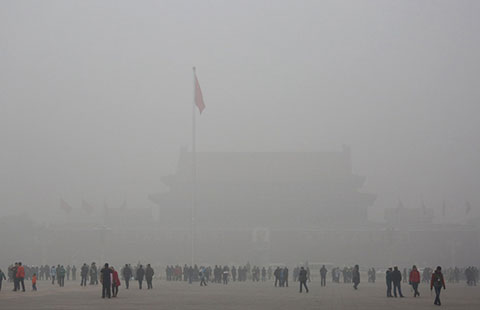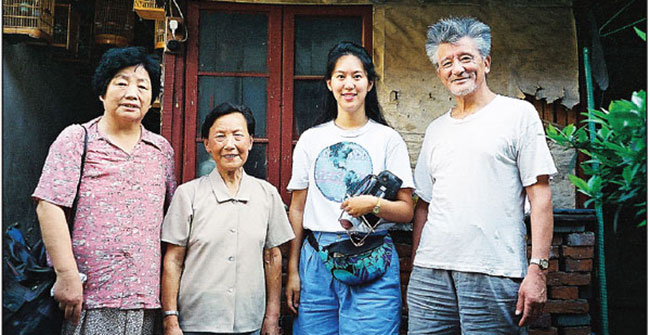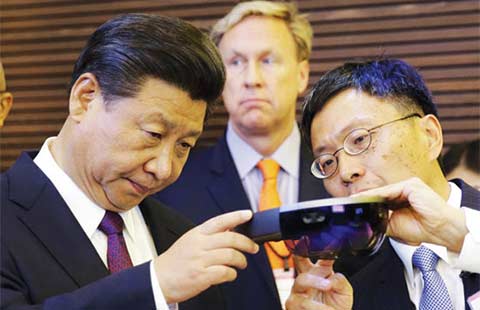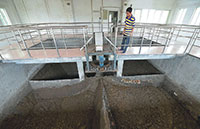China adds wisdom and strength to next G20 summit
By Shi Zehua (english.cntv.cn) Updated: 2015-12-17 22:16China supports further cooperation.
As China strengthens its international status, Beijing is transitioning from being a follower to acting as a pacemaker by learning to adapt to international rules and to establish new rules.
Meanwhile, developed economies rely on a traditional mechanism for global economic governance to hold on to their international rule-making powers. Such inequality has harmed development.
China, along with other developing countries, favor changing the old system to establish new institutions and to share a stronger voice in the international system.
Each year before the G20 leaders summit, China and BRICS (Brazil, Russia, India, China and South Africa) member countries hold a pre-session to coordinate on issues of common concern.
China's "Belt and Road" initiative could expand economic activities in Asia, Europe and elsewhere. The Asian Infrastructure Investment Bank (AIIB) is expected to enhance infrastructure investments in neighboring countries.
Beijing has launched the Silk Road Fund to forge better economic and diplomatic relations with emerging countries and to boost economic development opportunities.
China seeks reform as golden key.
Beijing supports a new global system, and the G20 would integrate China's wisdom and philosophy.
China has long advocated for win-win cooperation within the G20 framework to strengthen international relations. Promoting global governance via co-discussing, co-construction and sharing, ideas in-depth can be the solution.
The theme of 2016 China Summit will be "Building an innovative, invigorated, interconnected and inclusive world economy." Innovation is the engine for sustained economic growth.
Beijing promotes innovation-driven development in science and technology; developing institutional mechanisms and business models as new sources of growth.
China has proposed to increase endogenous growth that focuses on quality and efficiency. G20 countries advocate for comprehensive inter-operability and close interactions to overcome challenges, gather consensus, and build a global community of destiny.
Creating more inclusive growth can support practical actions to reduce inequality in global development. People all over the world should share in the dividends.
Next year's Summit will also address International Monetary Fund (IMF) quota and governance reforms, and expansion of its special drawing rights (SDR) basket of reserve currency.
The World Bank supports green finance, while coordinating on global value chain development for an inclusive development philosophy.
By promoting reform in the emerging markets and endorsing their voice in the world system could boost global economic growth rates alongside new development concepts, which will provide intellectual support for the world economy.
The author is with the G20 Research Center, Institute of International Relations, Beijing Foreign Studies University
- Physicists on cutting edge in search for dark matter
- Top information office holds record number of news conferences
- Shenzhen leaps to top of efficiency list in 2 yrs
- China aims to expand global FTA network
- Year's worst smog coming to north China
- China launches satellite to shed light on invisible dark matter
- China strongly opposes US arms sale to Taiwan
- Report: Layoffs may loom next year
- Pandas prefer choosing their own sex partners, researchers find
- Cyberspace door stays open, says watchdog chief







